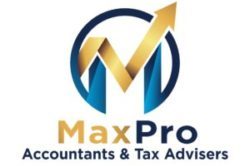We pride ourselves in helping individuals legitimately reduce their tax liabilities. We also love helping business owners with their tax affairs.
Selling a business marks a significant milestone, but the financial complexities, particularly those related to tax, can be daunting. A thorough understanding of the tax implications and available reliefs is crucial for a successful sale. The final tax liability is rarely straightforward and depends on how the deal is structured and the profit realised.
Understanding the Sale Process and Profit Calculation
A common misconception is that a business sale results in a single, upfront payment. In reality, buyers often propose alternative arrangements, or ‘consideration’, to manage their financial risk. This can include a phased payment plan where a portion is paid upfront, with the remainder released over a set period, often linked to performance milestones. For example, a £10 million sale might involve a £5 million initial payment, with the rest paid over three years subject to agreed targets. Another option is a buyer offering shares in the acquiring company, tying the seller’s return to the future success of the combined entity.
Tax is generally levied on the profit, not the total sale price. If a business is sold for £500,000 and the original investment (or ‘base cost’) was £100,000, the taxable gain is £400,000. Accurately determining this base cost is vital to avoid overpaying tax, especially if the business was inherited or if the owner has reinvested over time.
Capital Gains Tax and Business Asset Disposal Relief (BADR)
For most business sales, Capital Gains Tax (CGT) is applicable. However, the amount payable depends heavily on the seller’s eligibility for tax reliefs. Business Asset Disposal Relief (BADR), which replaced Entrepreneurs’ Relief, is a key consideration. BADR can significantly reduce the CGT rate on up to £1 million of lifetime gains. The current rate is 14%, but it is due to increase to 18% from 5 April 2026.
To qualify for BADR, specific conditions must be met. For individuals selling shares in a limited company, they must have been a director or employee and held at least 5% of the shares and voting rights for a minimum of two years prior to the sale. Sole traders and partnerships must have owned the business for at least two years and typically need to sell the entire operation. Given the upcoming rate increase, careful planning is more critical than ever.
Other Tax Reliefs to Consider
Beyond BADR, other reliefs can further reduce the tax burden.
Investor’s Relief: This is designed for external investors in smaller, unlisted companies. It cuts the CGT rate to 14% on gains up to £1 million, provided they meet strict criteria such as not being an employee or director.
Rollover Relief: This allows a seller to defer their CGT liability by reinvesting the proceeds into new business assets.
Holdover Relief: This can apply when business assets are gifted, deferring the gain until the recipient eventually sells them.
Navigating these tax reliefs and their complex criteria requires professional guidance. At MaxPro Accountants, we specialise in helping business owners structure their sale to maximise their after-tax returns, ensuring you get the most from your hard-earned exit. Get in touch HERE for more advice and information.
